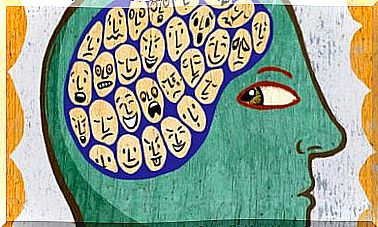When Your Emotions Cost You Money

Certain actions, such as losing or gaining money, are closely related to a person’s emotions. Money is usually not obtained or wasted for objective reasons. You could also say that money is a symbolic object. As such , your mind creates different meanings for it and different ways to manage it, always bearing in mind that it is a practically universal form of barter. If your emotions are costing you money, that’s what we’ll dig into in this article.
Whether you make or lose money depends on the decisions you make. It goes beyond having a lot or very little money; the defining aspect is how you manage your wealth. Wealth has kind of become a fetish. After all, we live in a world in which everything can gradually be bought and sold.
Poverty, in the sense of a lack of resources, and the emotional poverty that can accompany it, is a source of mental distress for many people. Perhaps they were left alone as children because their parents had to earn a living. It is also likely that at some point they felt ashamed of their lack of resources. In these specific cases, money is a complex issue that often leads to more problems.

When Your Emotions Cost You Money: Losing Money and Pretending
One factor that can cause you to lose money is hating your life. You are convinced that a lack of financial resources is the reason for your dissatisfaction with life. You live in the fantasy that your life would have more value if you had more money.
You think money and satisfaction go hand in hand. A thought that makes it impossible for you to enjoy situations that don’t involve large expenses. And since your resources are limited, discontent becomes a way of life for you.
Often you ‘solve’ the problem by pretending to have money. You often feel strongly attracted to status symbols. You lose money by spending it on unnecessary objects or brands. Your goal is to experience ‘what it feels like to have a lot of money’ and to feel complete and fulfilled… just for a moment.
When your emotions cost you money: losing money to fill a hole
This situation is similar to the previous one. The difference lies in the fact that, in this case, your frustration leads to impulsive and compulsive behavior. People in this category literally can’t stand seeing a product on sale and not buying it. Collectors of useless objects are governed by the need to keep buying.
However, subconsciously they try to satisfy other, deeper deficiencies. But because they are not aware of this, their wallets continue to drain. Their hunger for new things is insatiable. Supermarkets love these kinds of consumers and are only too happy to help them waste their money with little tricks. They bombard these individuals with promotions and bargains. However, most of the discount is deception…
In reality, they artificially raise the price, only to later lower it back to the normal price and make it look like a bargain. Anything to keep the buyer buying, and buying, and buying. And yes, the shoppers really do it themselves. In the end, they can still pay the bills, but they don’t feel satisfied either. And so they begin their vicious circle all over again.

When Your Emotions Are Costing You Money: How to Fix a Deficit
There are many unconscious factors involved in managing money. Today, the concept of happiness is very closely associated with consumerism. Money literally solves everything, we think. It would supposedly give meaning to a life that seems daunting.
It is therefore the importance we attach to money that causes us to lose it. Paradoxically, a disproportionate desire to be rich leads to loss. The difference between the real value of money and the meaning given to it leads to erratic and unintelligent actions. Money and consumption are used as means of solving difficulties of a different order.
However, financial problems are the last place you want to get your emotions involved. When dealing with confusing, neurotic emotions, the danger is even greater. The problem is that victims of this logic are unaware of their predicament.
Losing money therefore becomes a normal phenomenon. Ultimately, it confirms their discontent and causes their inner shortcomings to be re-experienced with newfound harshness.
And maybe winning and losing money is nothing more than a smokescreen. Perhaps it’s not that economic resources are the problem. Perhaps the problem is your unfulfilled desire, which keeps growing because money cannot fulfill it.
It is precisely this emptiness that sustains the unfulfilled desire. You get money, but it doesn’t help you; actually it only helps you to cover up difficulties and suffering that you don’t want to face.









